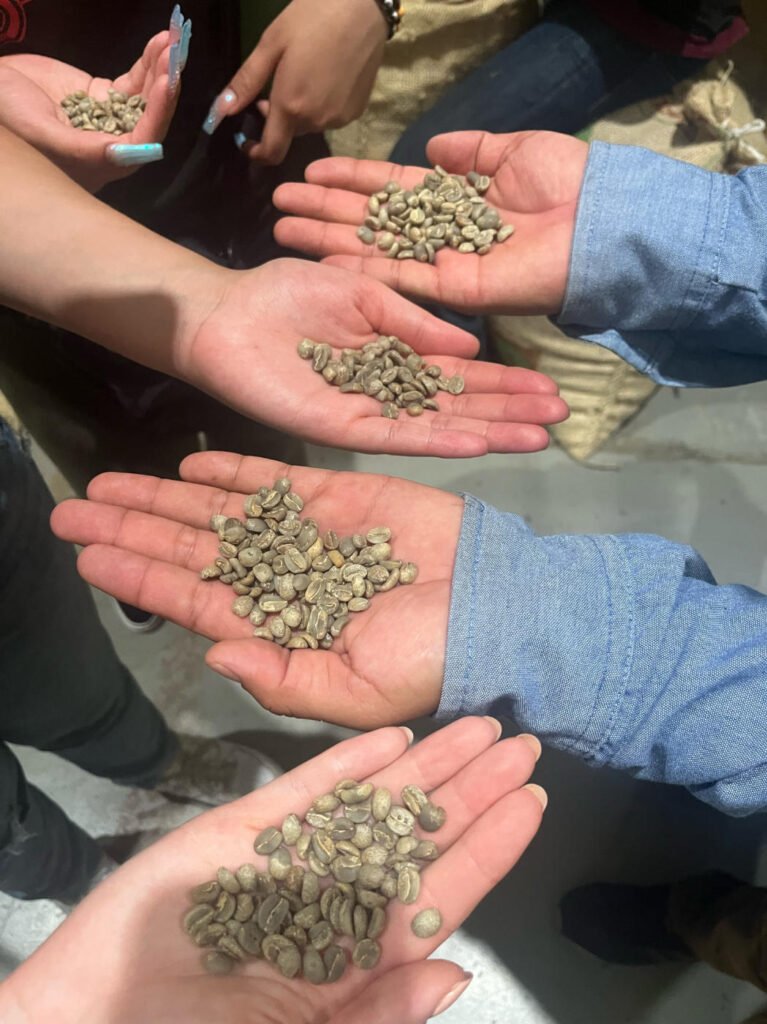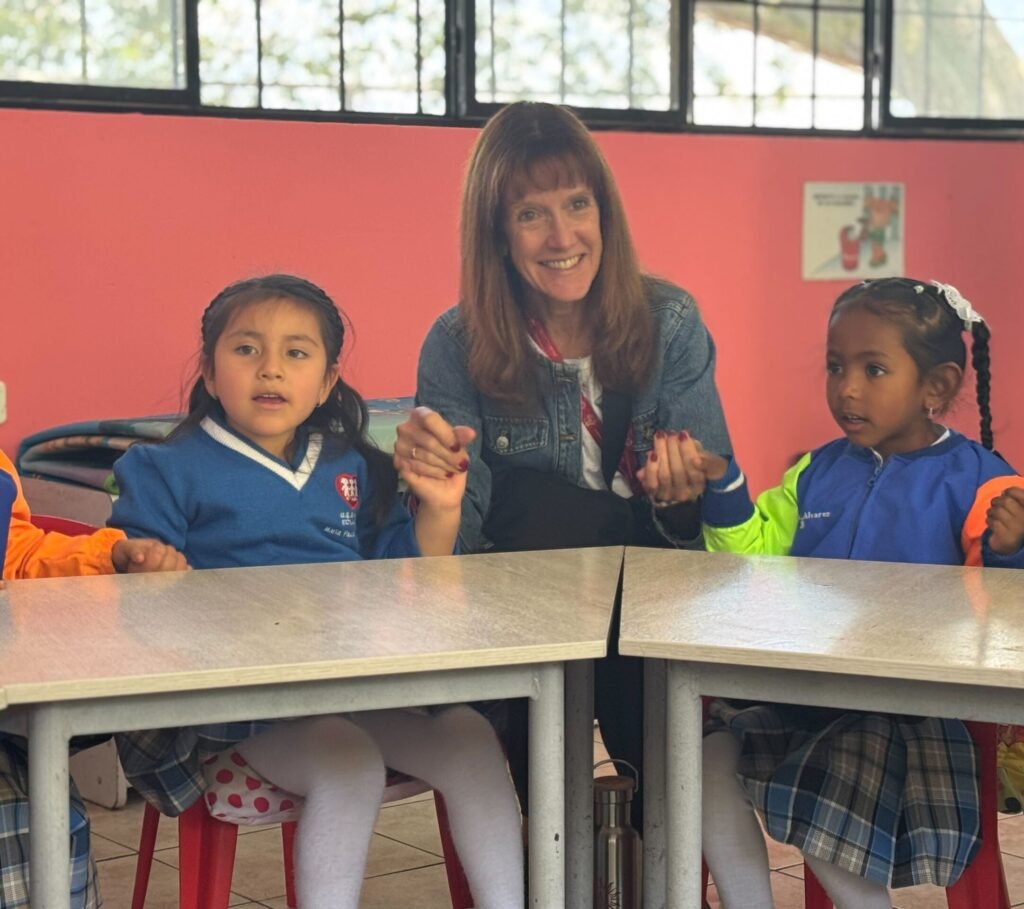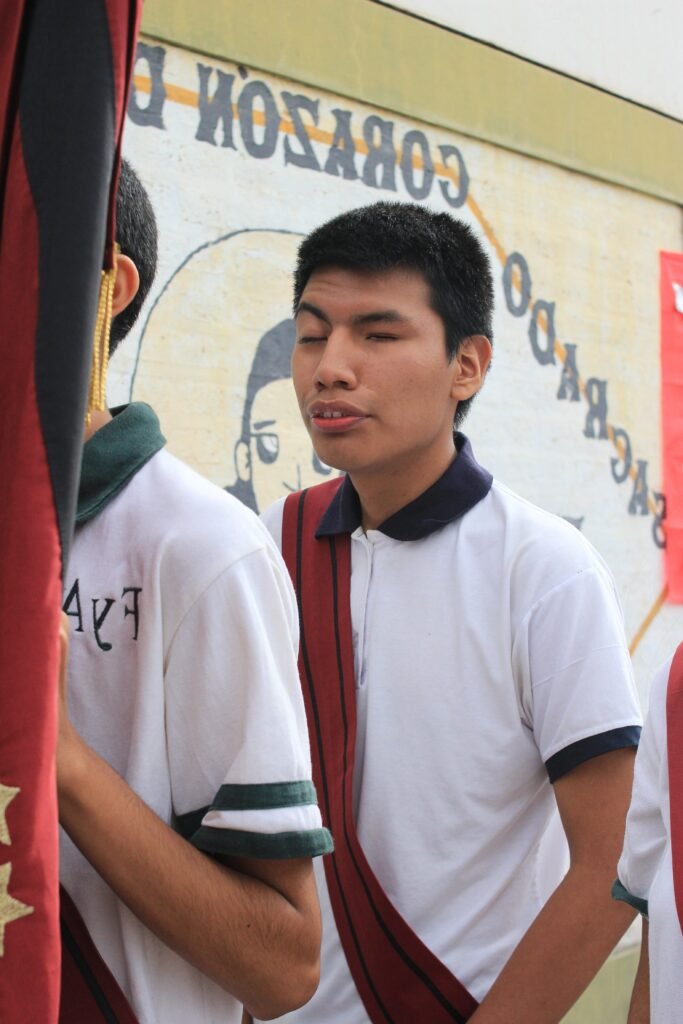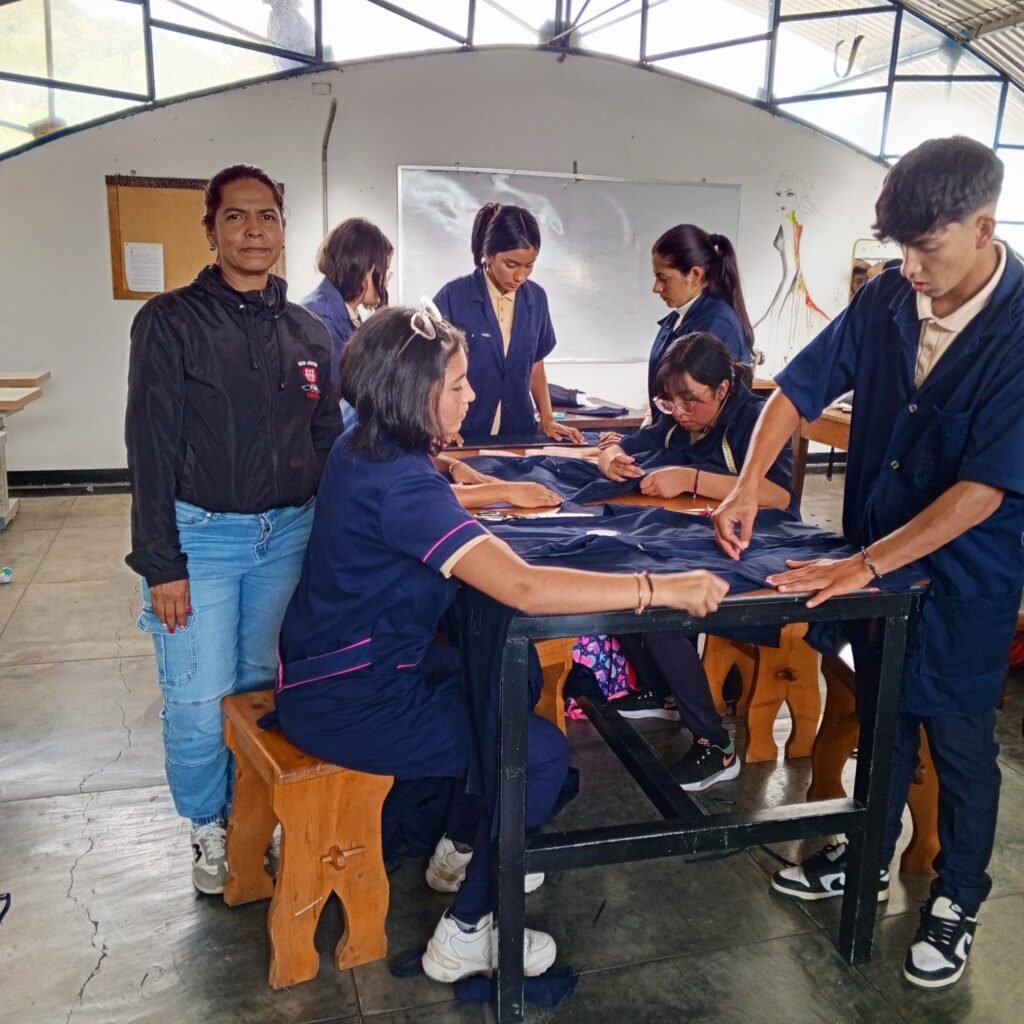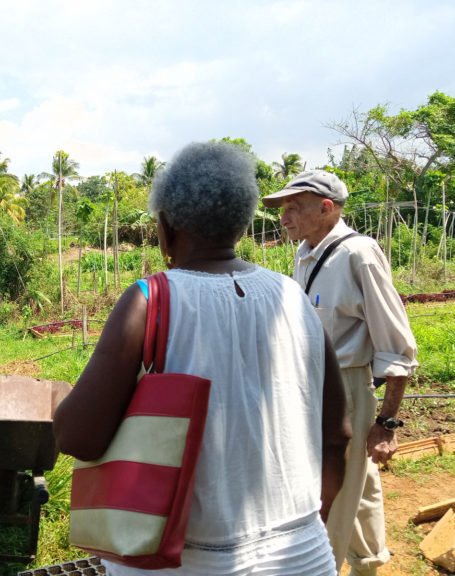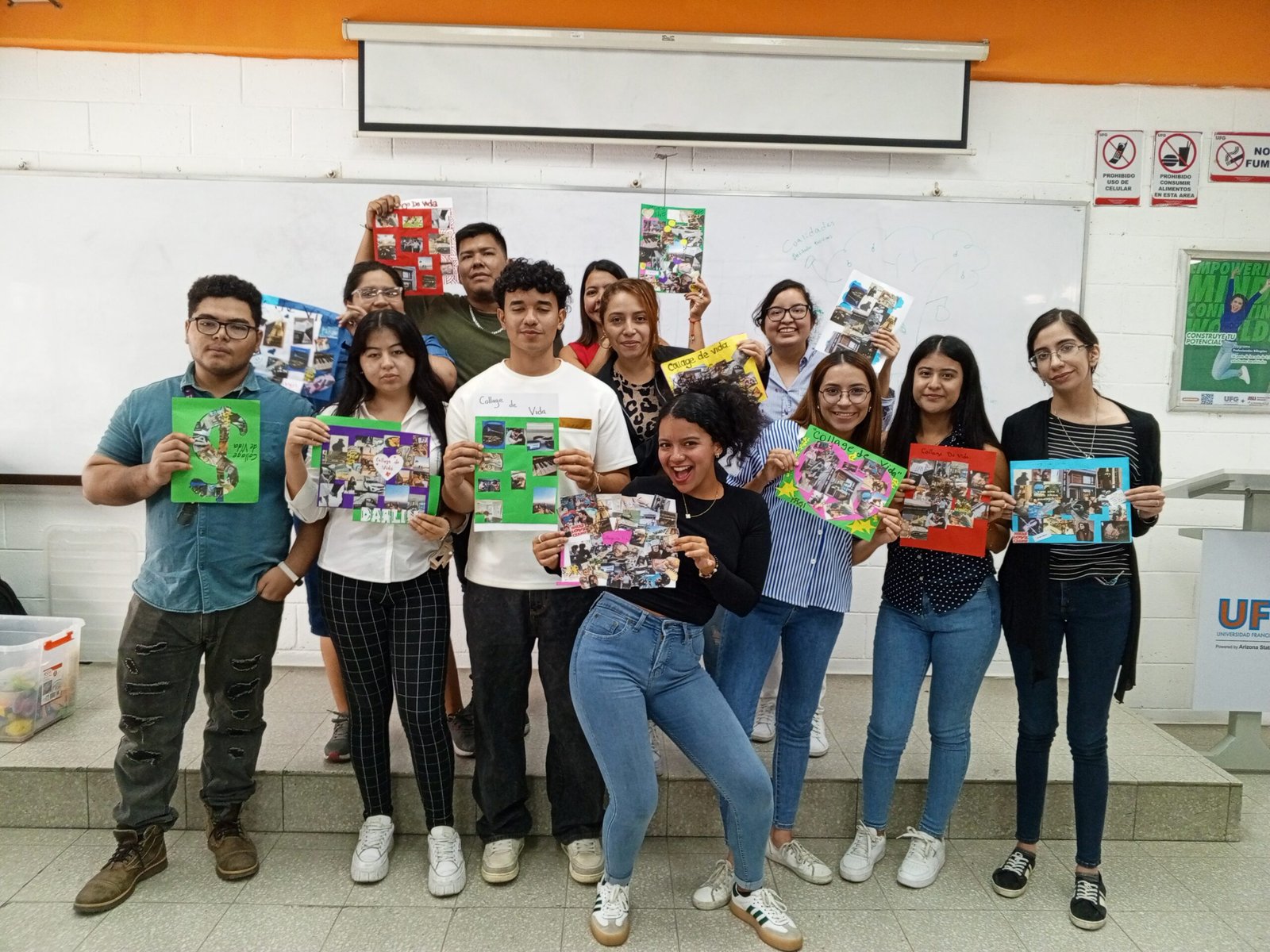CONTEXT
Nestled in the northern jungle of Chiapas, Mexico, lies a community of innovation and collaboration– the Yomol A’tel Cooperative. Part of the Comparte Network, this initiative brings together social and solidarity companies that produce organic and sustainable coffee, honey, and soap in an effort to transform the lives of their members while preserving the cultural heritage of the region.
The cooperative’s story began over 20 years ago when the Jesuits partnered with a group of Tseltal coffee growers to improve economic opportunities and combat environmental degradation. United by a shared determination to uplift their people, they established the Yomol A’tel Cooperative, which translates to “Working Together” in the local language.
The cooperative members draw inspiration from their traditional practices, ancestral knowledge, and respect for nature while integrating the best of modern techniques and technology in their production of coffee, honey, and soap.
OUR PROJECT
To strengthen the production, and commercialization capacities of the group and its members, the cooperative group of Yomol A’tel is building a processing facility that also serves as a meeting space, called “Modulo Integral Yomol A’tel” (MIYA), in the rural town of Chilon, Chiapas. The MIYA aims to promote the production, commercialization and capacity building of the organizations and its members to improve the families’ livelihoods.
While our collaboration with Yomol A’tel continues, this phase of construction of the MIYA has been completed. With previous support the land was purchased and registered, the office area for coffee certification was renovated and the meeting room, bathrooms for men and women, a computer laboratory, and a dinning area were all built. In 2024, with support from American Jesuits International, the cooperative was able to work with architects to design the next phase of development of the MIYA.
This second phase of the project responded to the greatest needs of the Yomol A’tel community in order to expand their ventures and strengthen their community ties. In September of 2024, the architects returned to Chiapas to finish the design stage of the plans for the new buildings, as well as to deliver the project to the cooperatives and beneficiaries for their approval at the general congress of Yomol A’tel, held every three years. This completes the second phase of our project but also sets the stage for continued growth and development of the MIYA and all the cooperative groups that benefit from these communal spaces.
Presentation of design plans to Yomol A’tel Community
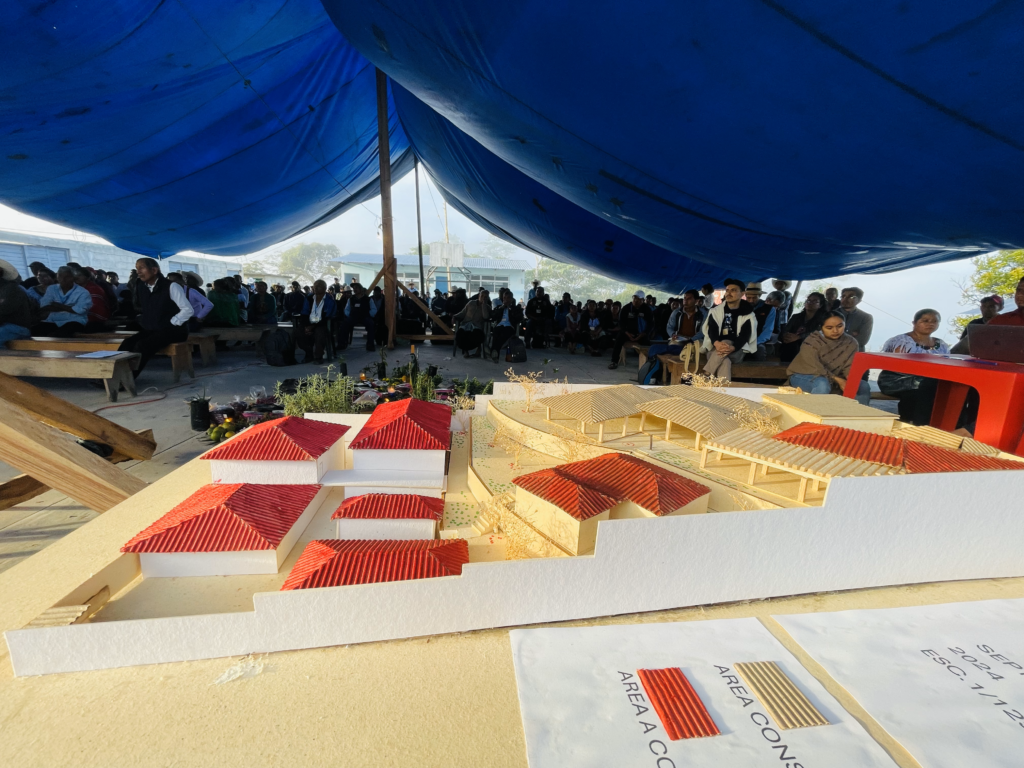
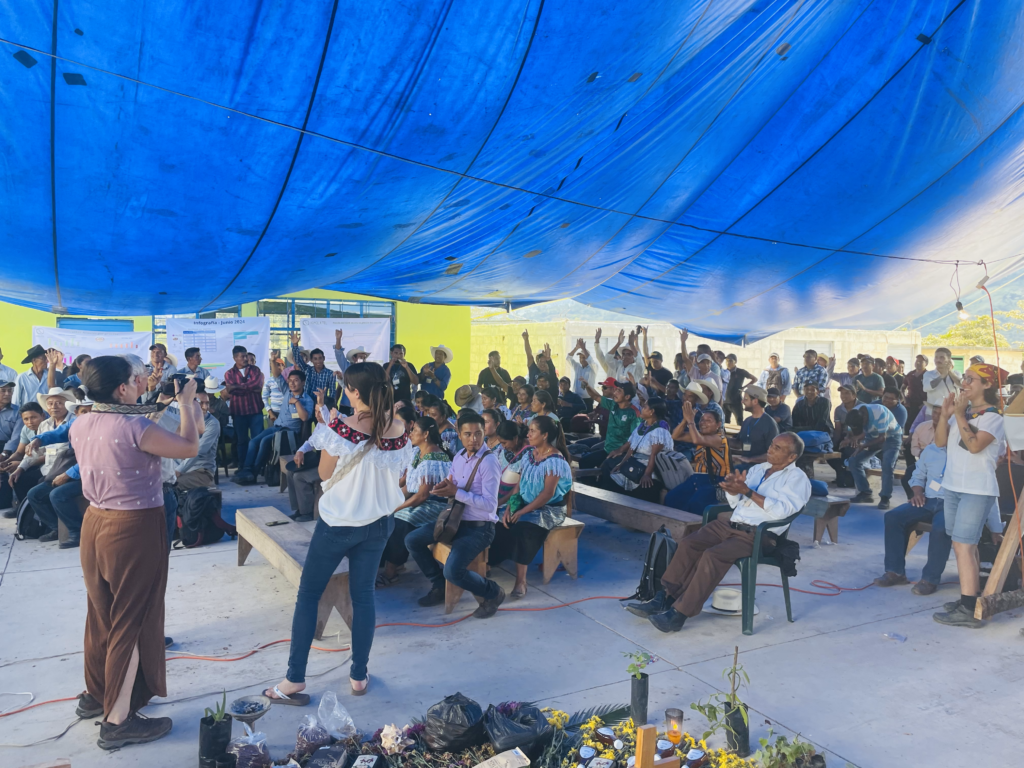
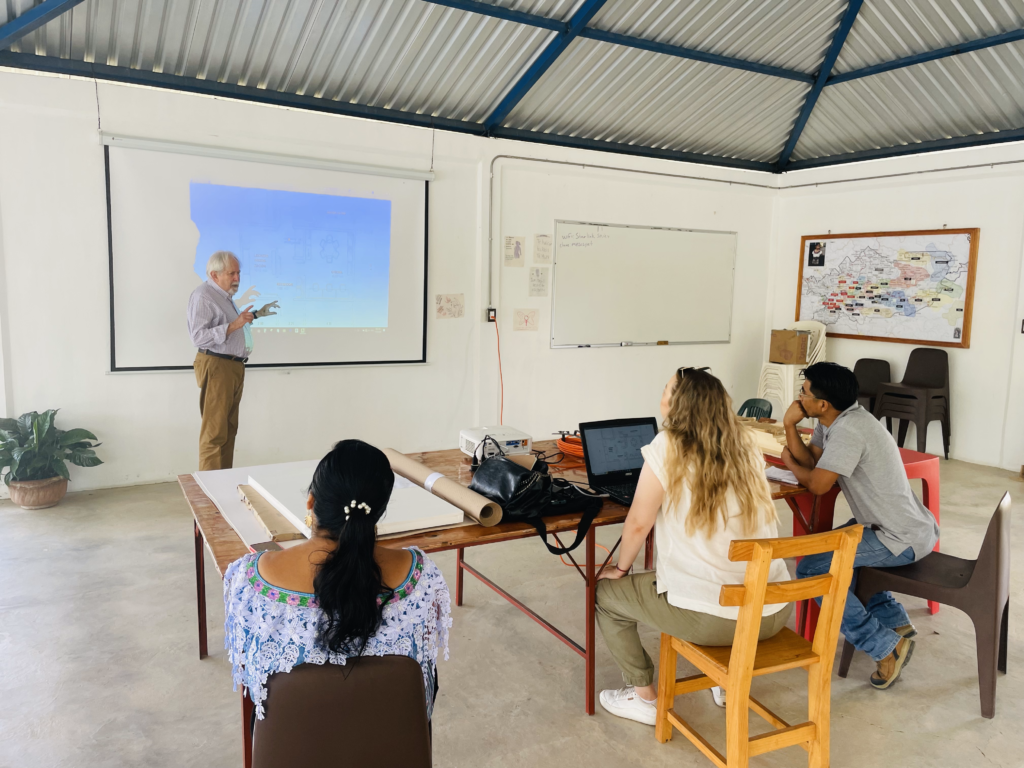
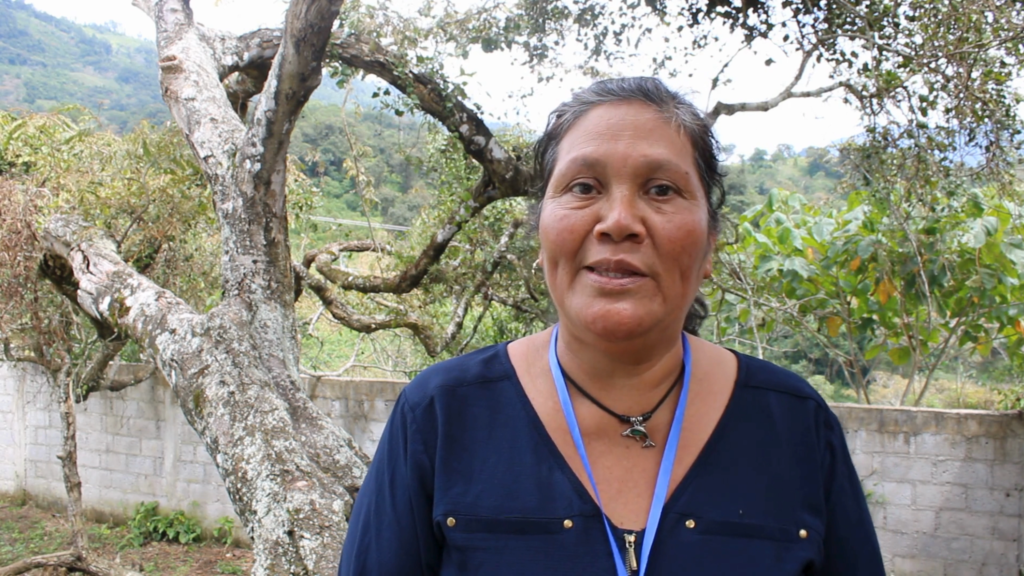
The MIYA is an accomplishment, it is a challenge, and it is a space where we will be able to meet, hold our community assemblies, and work together…. It is wonderful for us, especially us women, to have this space so we can start new businesses and develop our interests into new projects.
Dora Luisa Roblero, President of the Ts’umbal Xitalha’ Cooperative
